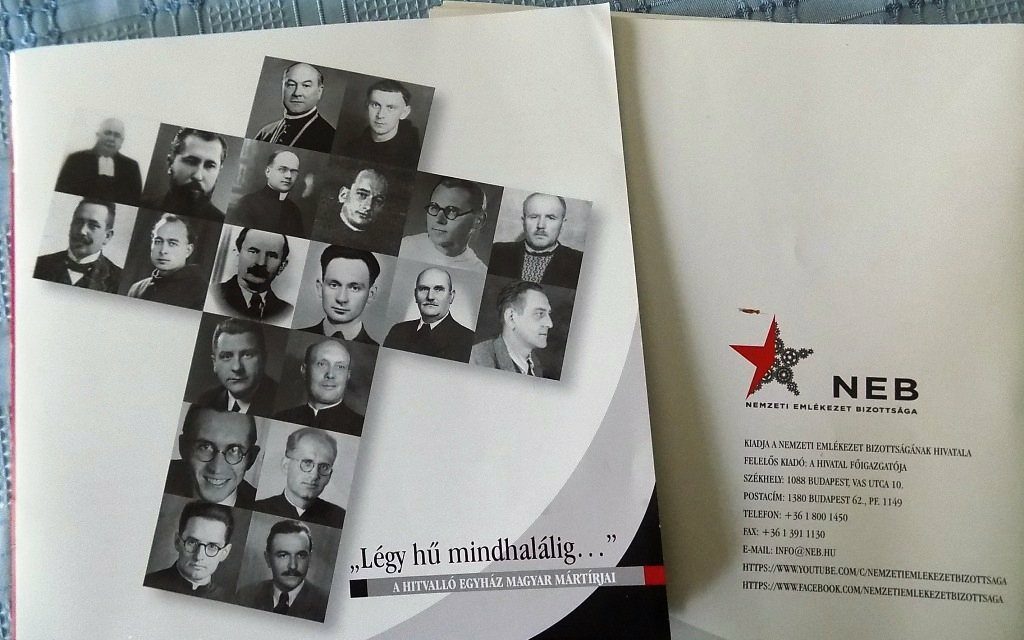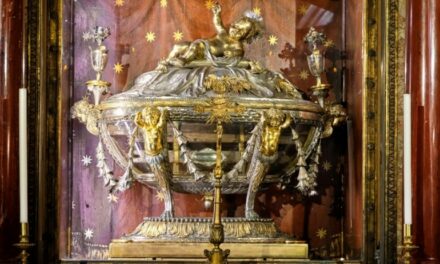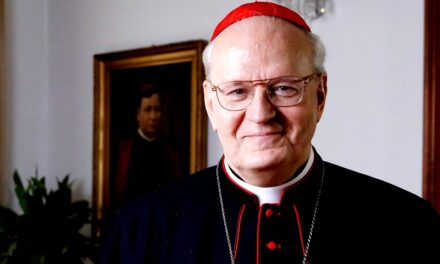The Office of the National Remembrance Committee commemorates the Hungarian martyrs of the confessional historic churches in the booklet "Be Faithful to the End - Hungarian Martyrs of the Confessing Church", in which Catholic, Reformed and Lutheran pastors, monks, church teachers and youth commemorates leaders who fell victim to communist rule.
The foreword was written by Áron Máthé, deputy president of the National Remembrance Committee, and church historian Viktor Attila Soós, a member of the National Remembrance Committee.
"From this booklet, the Reader can get to know the most important stages in the lives of twenty people who "suffered a war for the Truth. On December 15, 2017, it was the sixtieth anniversary of the murder of Rábakéthely chaplain János Brenner, and on December 31, 2017, we commemorated the sixtieth anniversary of the death of the innocently executed Reformed pastor Lajos Gulyás. Together with these two martyrs, we recall the examples of Hungarians at home and abroad who had the faith and courage to stand up to the violent lies of communism even at the cost of their lives," reads the recommendation. In 2020, the material of the traveling exhibition was linked to the commemorative booklet published in 2018.
From 1945, the fight against the churches began. The communists began their attack step by step with cunning tactics, concealing their true intentions. Religious organizations were disbanded, church schools were nationalized, the serving monastic orders (farmers, gardeners, nurses, teachers) were smashed, pastors and priests were dragged off, sent to prison or internment camps. Some ended up in the camps, others ended their lives on the gallows, some were beaten to death and some disappeared.
However, the church survived the dictatorship.
"Living in the truth is the basis of human dignity, even if the truth demands a high price," said Father Jerzy Popieluszko, a Polish martyr priest who was brutally murdered at a young age.
The memorial booklet lists church members who were executed, imprisoned, tortured, persecuted, disabled during the existence of communist dictatorships.
This is connected to the exhibition consisting of 22 scrolls, which the Office of the National Remembrance Committee travels around the territory of historical Hungary and gives the opportunity to use this exhibition to commemorate those who remained faithful to their faith and nation even at the cost of their lives.
Church historian Viktor Attila Soós, the editor of the memorial booklet and the exhibition, testifies about his work as follows:
"Researching the history of the church is a very nice task. We can present positive examples and heroes and draw strength from their lives and examples.
We can see and understand that only by keeping our Hungarianness and our Christianity, by the cohesive force of the nation, can we survive and stick together in our daily tasks. At every age, we need heroes and role models who give us strength in difficulties and show us the way."
Source, full article and featured image: Felvidek.ma













